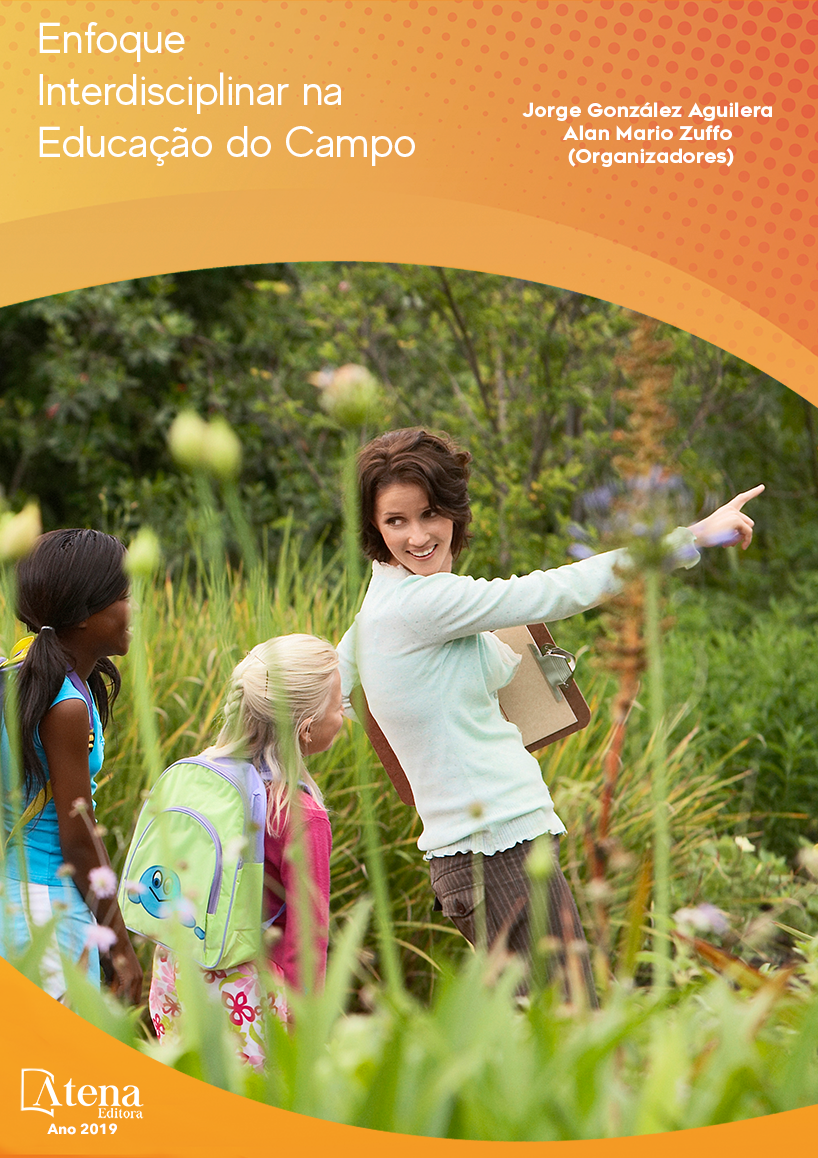
EDUCAÇÃO DO E NO CAMPO, ENSINO SUPERIOR E TRABALHO: REFLEXÕES SOBRE DESAFIOS E CONQUISTAS NESSE CENÁRIO
O presente estudo tem como
foco a realidade dos sujeitos do campo ao
concluírem a educação básica, sua inserção
no ensino superior e a sua influência no meio
em que vivem, com ênfase no mercado de
trabalho ligado à sua formação e sem sair
do campo. O estudo apresenta os dados
coletados na pesquisa campo realizada por
meio de um questionário semiestruturado
aplicado aos moradores de uma comunidade
rural que cursaram uma licenciatura e ainda
continuam morando no campo. As respostas
obtidas são base para discutir a relação do
número de moradores que continuaram seus
estudos após o Ensino Médio, que concluíram
o Ensino Superior e ingressaram ou não no
mercado de trabalho em consequência dos
seus estudos e formação. Percebeu-se um
pequeno número de moradores com formação
superior na comunidade pesquisada. Ouviramse
suas respostas quanto às dificuldades e
entraves para que adentrar e permanecer na
universidade. As respostas apontaram que nos
últimos tempos a maioria dos moradores dessa
zona rural concluíram o nível superior cursando
licenciaturas. Mostrou-se ainda que há um
número considerável de professores moradores
do campo que contam com formação específica
para atuarem nas escolas rurais, porém, que
poucos conseguiram espaço para atuarem.
Evidencia-se na finalização do trabalho que o
campo é um espaço de vida no qual existem
cidadãos com direitos, mas que esses tiveram
menos oportunidades de acesso aos estudos
e da mesma forma, ao trabalho, incluindo o
trabalho na sua própria comunidade rural em
que vive.
EDUCAÇÃO DO E NO CAMPO, ENSINO SUPERIOR E TRABALHO: REFLEXÕES SOBRE DESAFIOS E CONQUISTAS NESSE CENÁRIO
-
DOI: 10.22533/at.ed.18421906056
-
Palavras-chave: Campo. Ensino Superior. Formação. Trabalho. Desafios.
-
Keywords: Field. Higher education.Formation.Job.Challenges.
-
Abstract:
The present study focuses on
the reality of the subjects of the field when
completing basic education, their insertion
in higher education and their influence in the
environment, with emphasis on the labor market
linked to their training and without leaving the
field. The study presents the data collected in
the field research conducted through a semistructured
questionnaire applied to the rural
residents who attended a degree course and
still continue to live in a rural community. The
answers obtained are the basis for discussing
the relation between the number of residents
who continued their studies after high school,
who completed Higher Education and whether or not they entered the labor market as
a result of their studies and training. A small number of locals with higher education in
the surveyed community were perceived. Their answers were heard as to the difficulties
and obstacles to the greater number of people in the field within the universities. Even
so, the answers pointed out that in recent times most of the residents of this rural
area who have completed the higher level have undergone degrees. It also showed
that there are a considerable number of professors living in the countryside who have
specific training to work in rural schools, but few have been given space to act. It is
evident in the finalization of the work that the field is a space of life in which there are
citizens with rights, but that they had less opportunity of access to study and in the
same way to work, including work in their own rural community in which Lives.
-
Número de páginas: 15
- Cláudia Regina Vasconcelos Bertoso Leite
- WELBER EDUARDO VAZ


